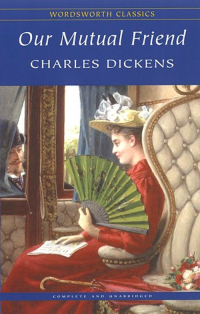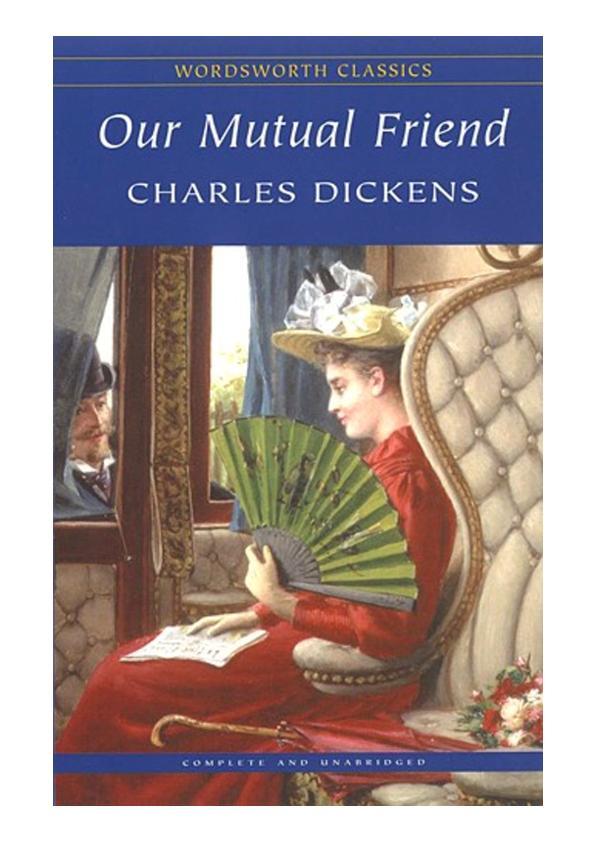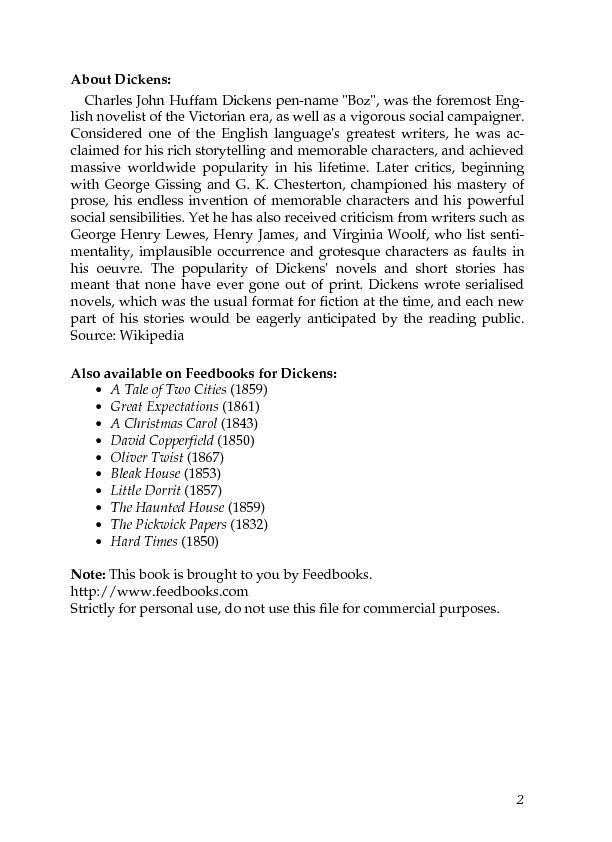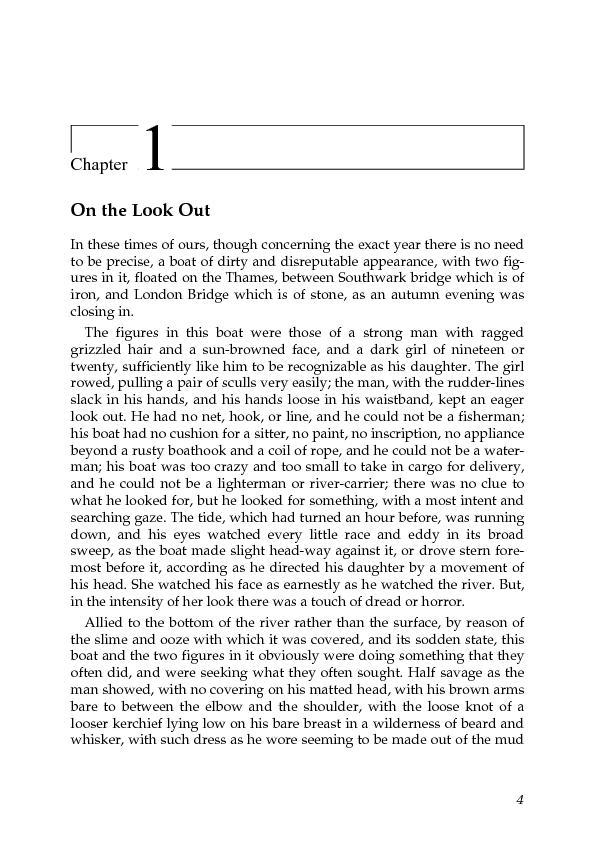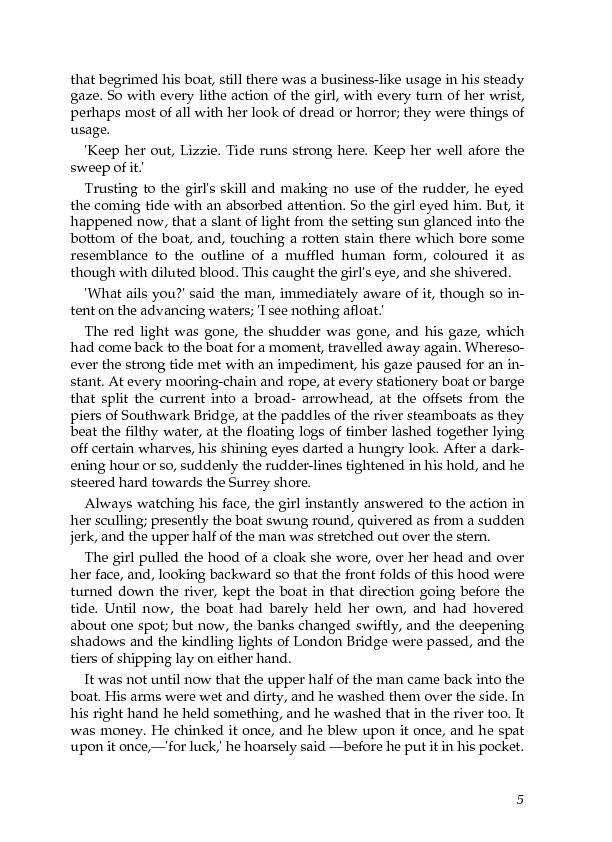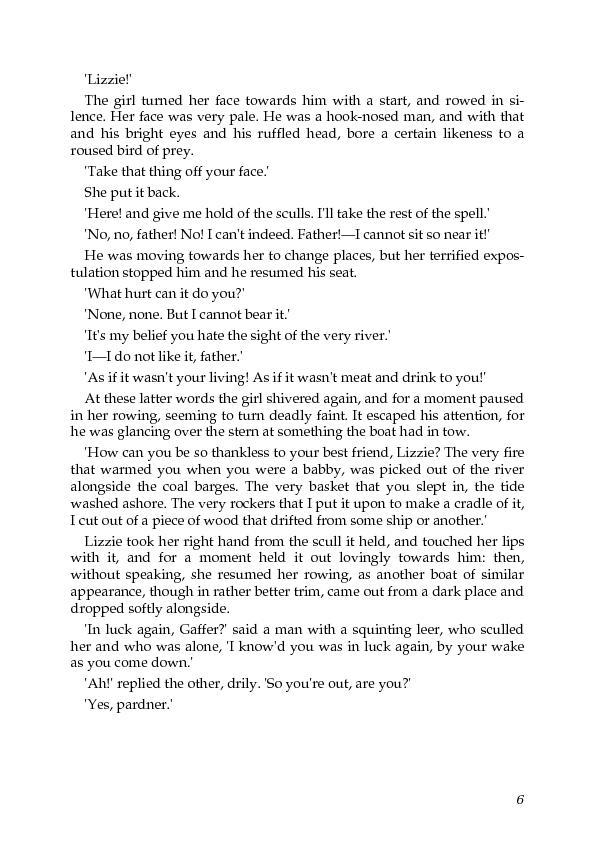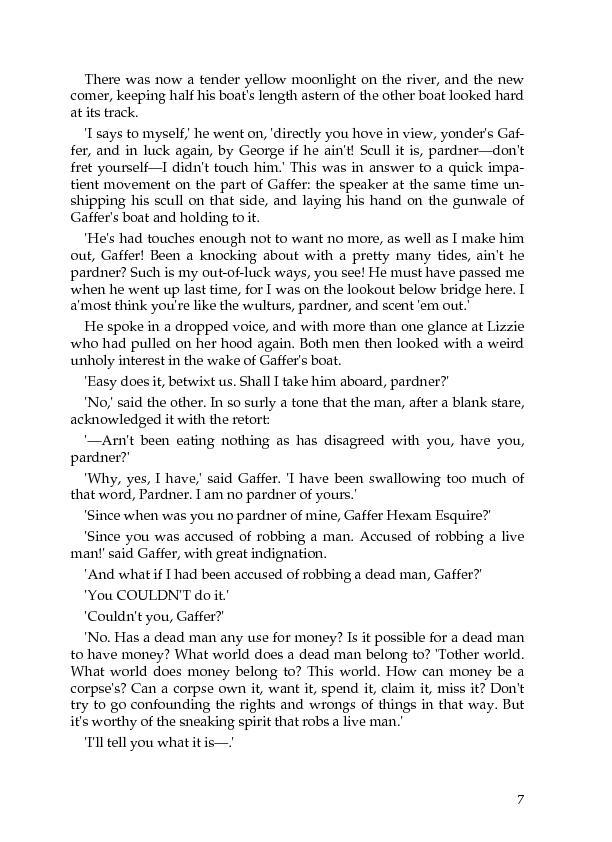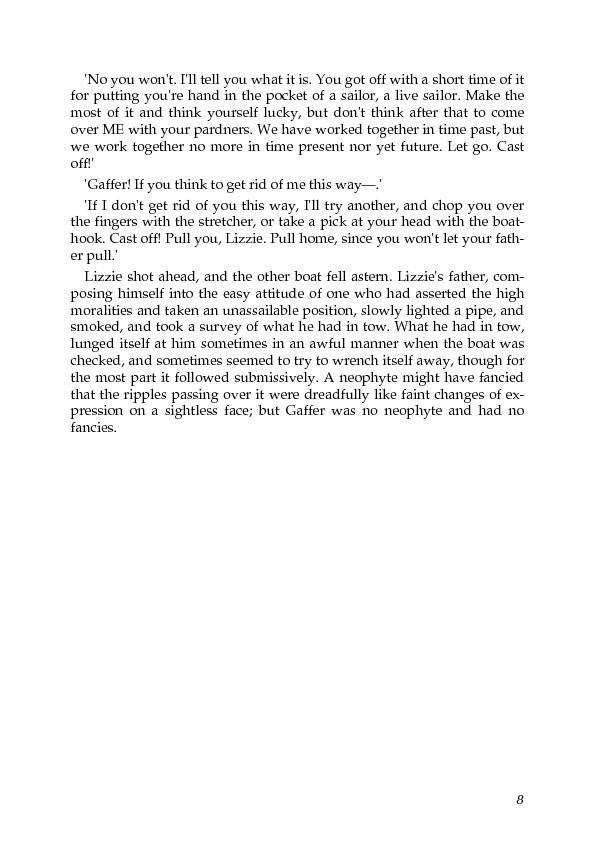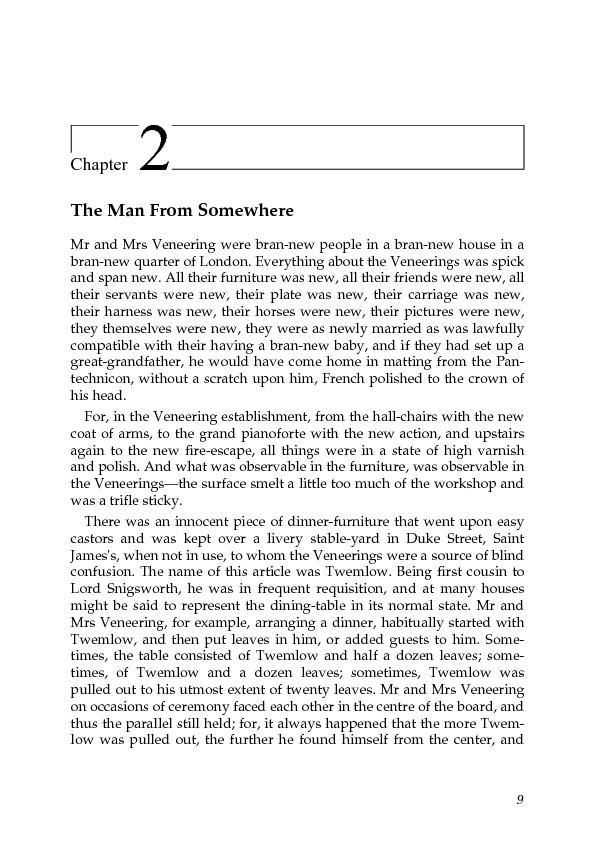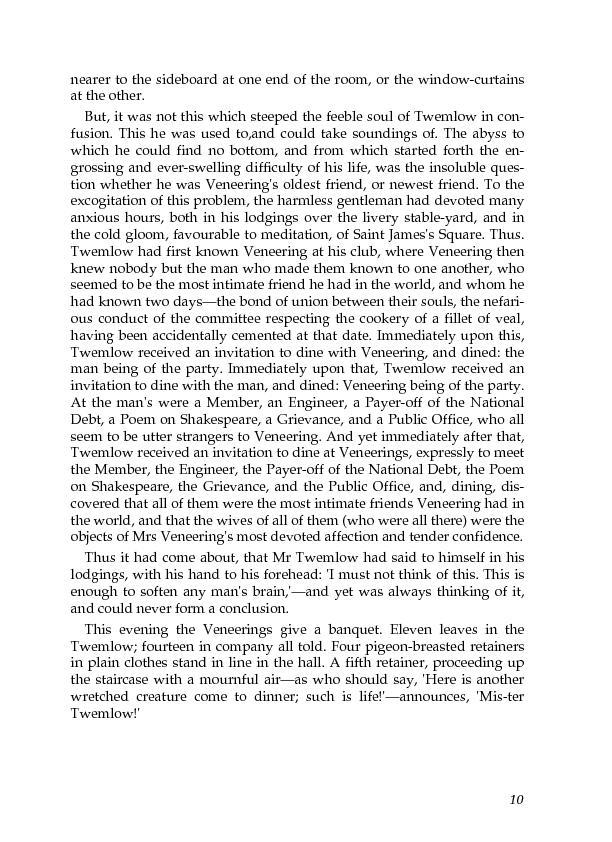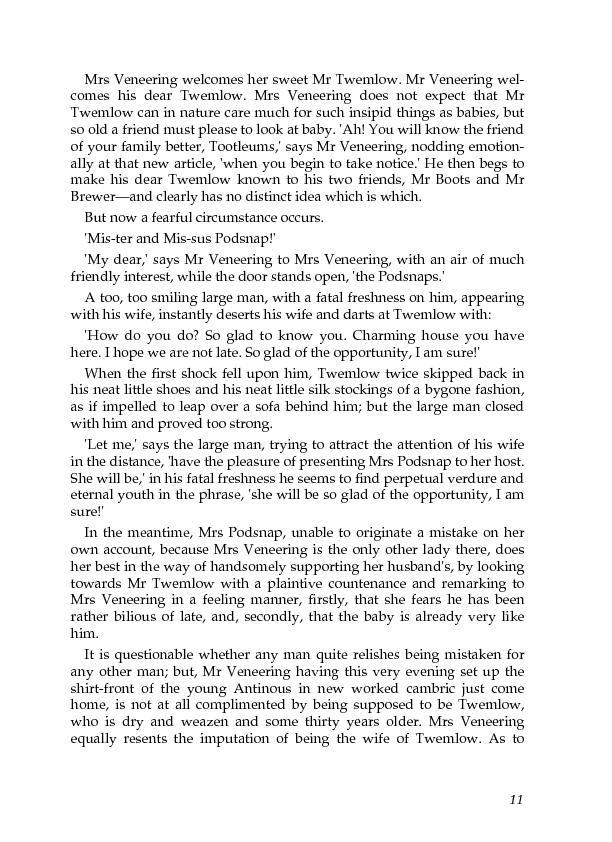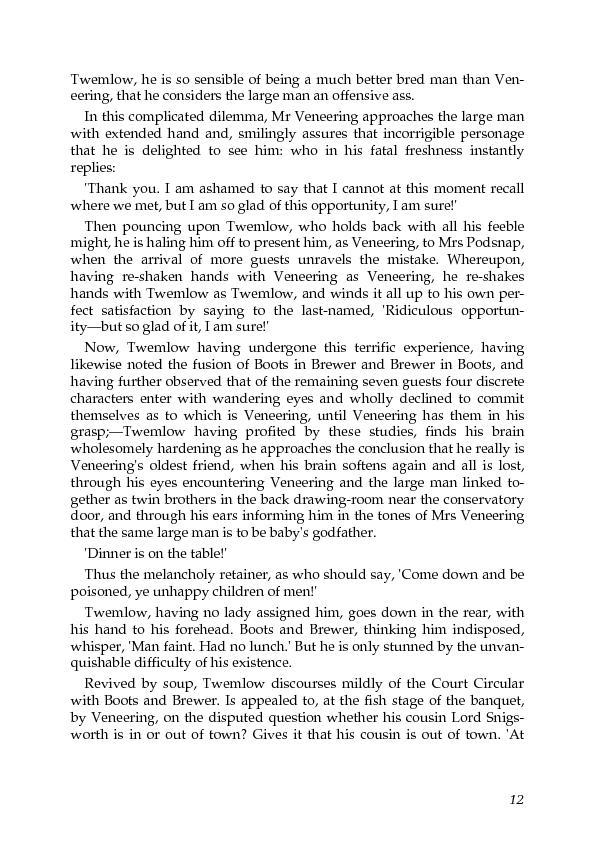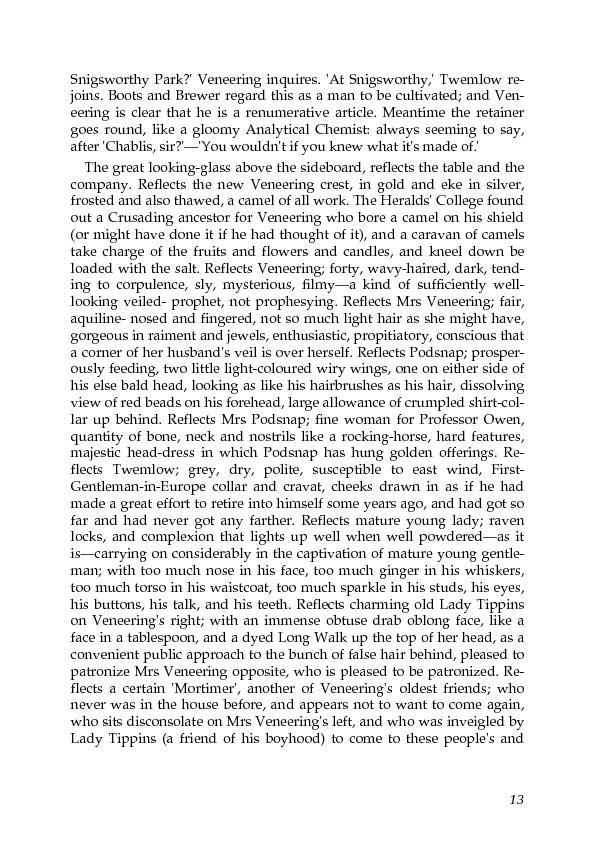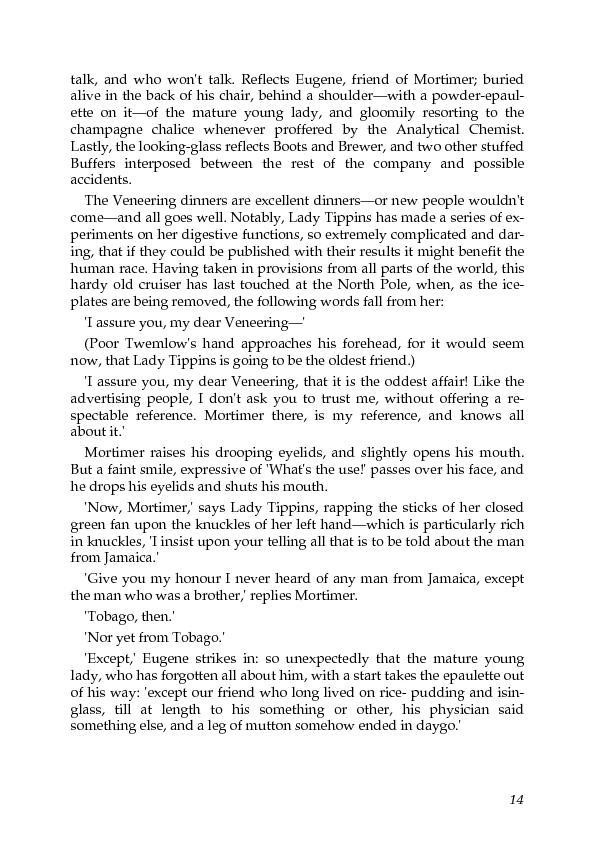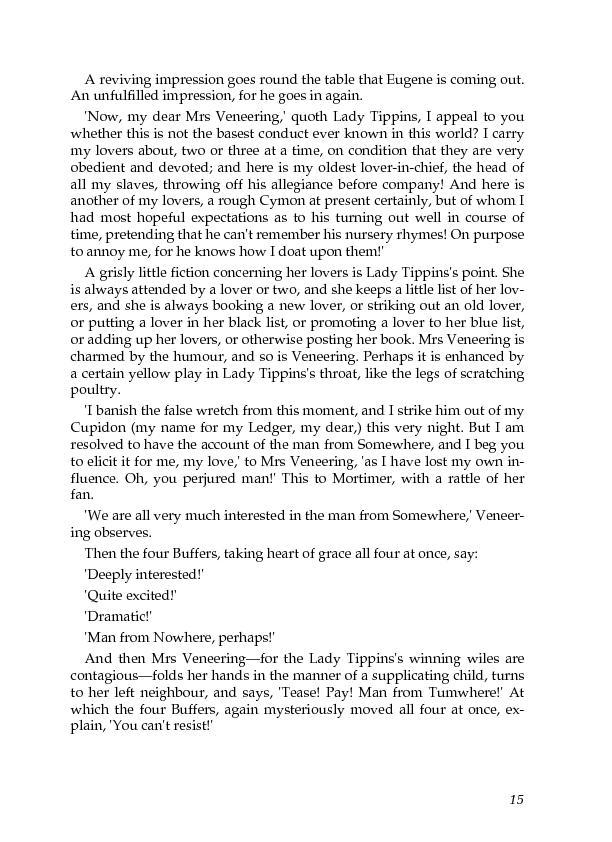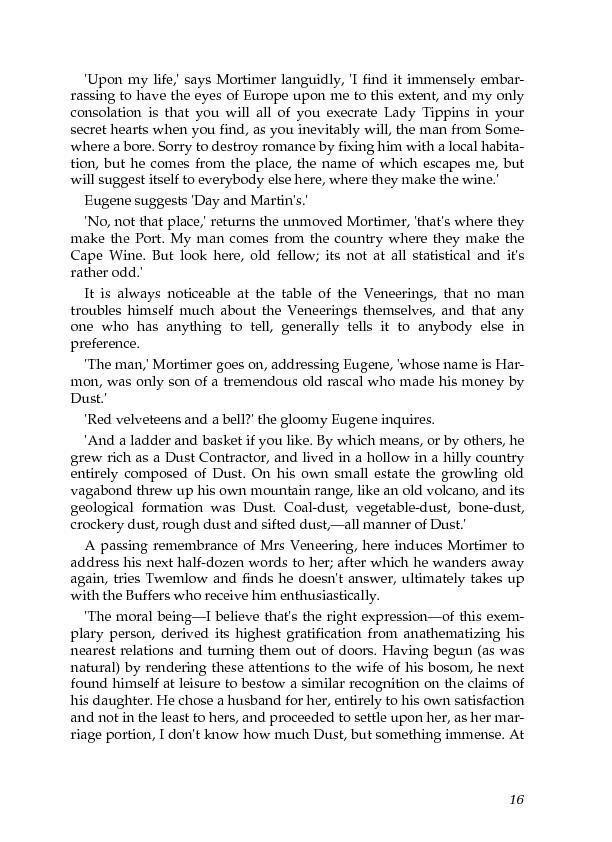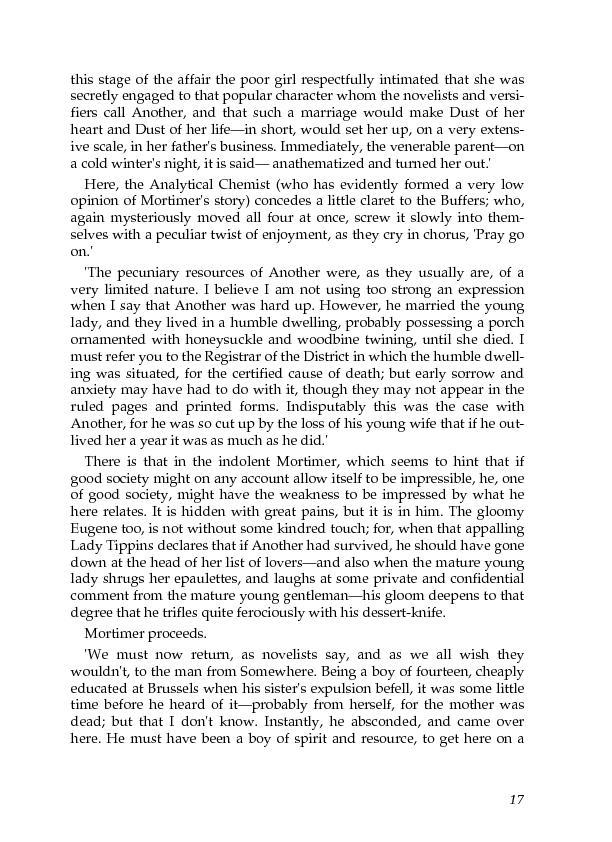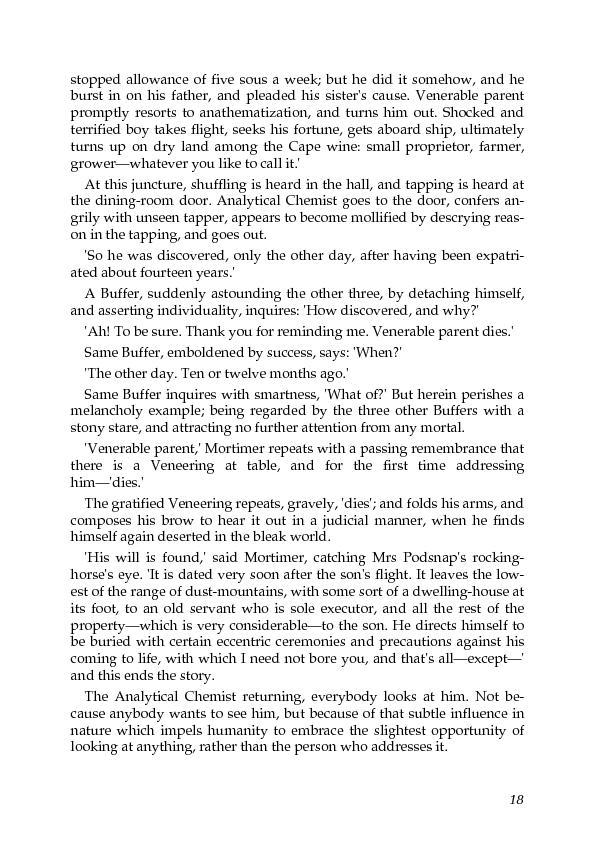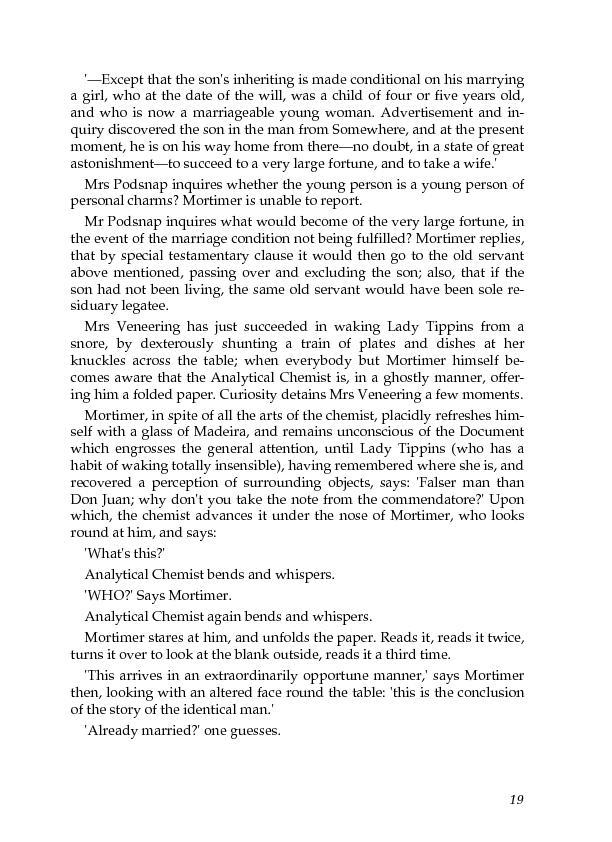Our Mutual Friend
Our Mutual Friend
By: Charles Dickens
John Harmon returns to London from exile at his father's death, to claim his inheritance. But he finds he is eligible only if he marries Bella Wilfer, and in order to observe her character he assumes another identity and secures work with his father's foreman, Mr. Boffin, who is also Bella's guardian.
Title information
A rich misanthropic miser who has made his fortune from London's rubbish dies, estranged from all except his faithful employees Mr and Mrs Boffin. By his will, his fortune goes to his estranged son John Harmon, who is to return from where he has settled abroad (putatively in South Africa, though this is never stated) to claim it, on condition that he marries a woman he has not met, Miss Bella Wilfer. The implementation of the Will is in the charge of the solicitor, Mortimer Lightwood, who has no other practice. Before the son and heir can claim his inheritance, he goes missing, presumed drowned, at the end of his journey back to London. A body is found in the Thames by Gaffer Hexam, a waterman who makes his living from retrieving corpses and robbing them of valuables before rendering them to the authorities. The body is identified from papers in the pockets as that of the heir, John Harmon. Present at the identification is a mysterious young man, who gives his name as Julius Handford and then disappears. By the terms of the miser's will, the whole estate then devolves upon Mr and Mrs Boffin, naive and good hearted people who wish to enjoy it for themselves and to share it with others. They take the disappointed bride of the drowned heir, Miss Wilfer, into their household, and treat her as their pampered child and heiress. They also accept an offer from Julius Handford, now going under the name of John Rokesmith, to serve as confidential secretary and man of business, at no salary. He uses this position to watch and learn everything about the Boffins, Miss Wilfer, and the aftershock of the drowning of the heir John Harmon. A one-legged ballad seller, Silas Wegg, is engaged to read to Mr Boffin in the evenings, and he tries to take advantage of his position and Mr Boffin's good heart to obtain other advantages from the wealthy dustman. Gaffer Hexam, who found the body, is accused of murdering John Harmon by a fellow-waterman, Roger "Rogue" Riderhood, who is bitter at having been cast off as Hexam's partner on the river and who covets the large reward offered in relation to the murder. Hexam is shunned by his fellows on the river, and excluded from The Six Jolly Fellowship-Porters, a public house frequented by them on the river. Hexam's young son, the clever but priggish Charley Hexam, leaves his father's house in order to better himself at school, and train to be a schoolmaster, encouraged by his sister, the beautiful Lizzie Hexam. Meanwhile, Lizzie stays with her father, to whom she is devoted.
Charles Dickens
Charles John Huffam Dickens (7 February 1812–9 June 1870) was the most popular English novelist of the Victorian era, and one of the most popular of all time, responsible for some of English literature's most iconic characters.
Many of his novels, with their recurrent theme of social reform, first appeared in magazines in serialised form, a popular format at the time. Unlike other authors who completed entire novels before serialisation, Dickens often created the episodes as they were being serialized. The practice lent his stories a particular rhythm, punctuated by cliffhangers to keep the public looking forward to the next installment. The continuing popularity of his novels and short stories is such that they have never gone out of print.
His work has been praised for its mastery of prose and unique personalities by writers such as George Gissing and G. K. Chesterton, though the same characteristics prompted others, such as Henry James and Virginia Woolf, to criticize him for sentimentality and implausibility.


